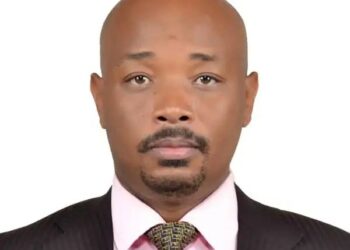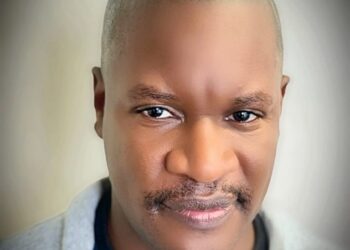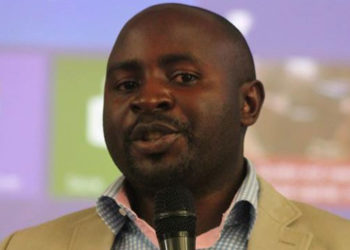By Derrick Kiyonga
Evangelist Joseph Kabuleta’s incarceration for allegedly insulting members of the First family once more reminded Ugandans of a legislation that is an existential threat to freedoms of speech and expression- The Computer Misuse Act.
The law has been on Uganda’s statute books since 2011. Case after case have been brought before various lower courts but because it is centered on curtailing Human rights, none of them have ever been conclusively determined.
Here is the spotlight how the retrogressive law has been used by the state to clampdown on internet based dissent.
If there is a person whose digital rights have been vehemently abused by the use of Computer Misuse Act, 2011- It is Dr Stella Nyanzi, the former Makerere University researcher. Since 2017, Nyanzi, a virulent social media activist, has two separate albeit unconcluded criminal prosecutions buttressed in the eight- year – old Computer Misuse Act, hovering over her head. All charges are related to allegedly abusing President Museveni or his relatives using her normally poetic and descriptive Facebook posts. But before the state could turn its fangs, using the now authoritarian Computer Misuse Act, to Nyanzi- we had witnessed the Robert Shaka episode. On Facebook, Shaka goes by Maverick Blutaski, as his pseudonym.
On June 8, 2015, after being kidnapped by security agencies for a number of days, Shaka was arraigned before the Buganda Road Chief Magistrate’s court and charged with frequently using a computer to disturb Museveni’s privacy. Shaka, the Director of Public Prosecutions (DPP) claimed, had violated Museveni’s privacy by posting statements regarding the president’s health condition on face book, a charge he vehemently repudiated. The most interesting part about this charge sheet was the fact that the state was convinced that Shaka was the same person as Tom Voltaire Okwalinga (TVO), a popular but elusive blogger. For a number of years, TVO who is wanted by Uganda’s security agencies, had startled the ruling NRM party via posting exclusive information on his Facebook page.
He amassed a huge following on Facebook having claimed to know the behind -the –scenes happenings within the ruling establishment circles and most importantly within the first family, something his followers believed. By arresting Shaka, police chest thumped saying that it had finally netted its man, TVO. Yet throughout Shaka’s incarceration, TVO’s Facebook page was active and he continued fire off mocking posts aimed at security agencies. This never deterred the state. Using the now potent weapon- Section 25 of the Computer Misuse Act, 2011 Shaka was charged with “offensive communication”. The charge sheet claimed that Shaka who disguised himself under the moniker, TVO, between 2011 and 2015, in Kampala, willfully and repeatedly used a computer with no purpose of legitimate communication, to disturb the right to privacy of president Museveni through posting statements regarding his health condition on social media (Facebook).
Though Shaka was charged in 2015, like the norm is in Uganda, the state didn’t present its witnesses immediately nor did the purported “complainant” Museveni ever show up. Asked as to why Museveni or his relatives have never made any formal statement at police since it’s believed that they are the complainants, Jane Okuo Kajuga, the DPP’s publicist rubbished such a belief as “mistaken.” “Any member of the public can be a complainant,” Kajuga said, “any person who feels offended can be a complainant and the case is taken up by the police.”
That said, the procrastination by the DPP in Shaka‘s case gave his lawyers ample space and time to scratch their heads and come up with a different strategy to fight the charges. In 2016, Isaac Kimaze Ssemakadde, Shaka’s lawyer, who was armed with a constitutional petition, asked Jameson Karemani the then Buganda Road Court Chief Magistrate, to stay the hearing of the case.
Ssemakadde reasoned that Shaka and activist Andrew Karamagi had challenged the constitutionality of Section 25 of the Computer Misuse Act 2 of 2011, the law under which Shaka had been charged was under challenge at the Constitutional court- the trial couldn’t go on as planned. In the petition which was submitted to the magistrate the duo claimed that Section 25 which declares it an offence for any person to ‘willfully and repeatedly use electronic communication to disturb the peace or right of privacy of any person with no purpose of legitimate communication’ is inconsistent with and in contravention of Article 29(1) of the constitution, which guarantees the enjoyment of freedom of expression. Karemani had no option but to stay the case and until to date it has never seen the light of the day because the constitutional petition has never been heard by the Constitutional Court. Shaka and Karamagi aren’t the only citizens challenging Section 25 of the law.
Unwanted Witness and Swaibu Nsamba Gwojolonga’s petition challenging the same section is still pending before the same court. The end of 2016 had seen Gwojolonga who belongs to the Forum for Democratic Change, the biggest opposition political party in Uganda, spend a number of days in jail. The accusation was simple: He posted on Facebook how he would be eager to announce Museveni’s death. The post showed Museveni’s lifeless body in a casket. This was interpreted by DPP as offensive communication contrary to section 25, which now is under double challenge.
Though section 25 is under challenge in a superior court, it has not deterred the DPP. He has continued to silence dissent online by charging dozens of people, in lower courts, under the same law, without any success, to write home about. For instance, in 2017, two local musicians David Mugema, 31, and Jonathan Muwanguzi, 23, were charged with offensive communication under sections 25 and 21 of the of the computer Misuse Act, 2011.
The gist of the DPP’s claim was that the duo had produced and sung songs that ostensibly disturbed the peace of Museveni. Mugema and Muwanguzi had produced and electronically communicated through social media a song entitled Wumula mzee (take a rest old man). When the song gained traction on social media, the DPP picked interest and thereby concluded that it disturbs the amity of the president who has been in power for the last three decades. In April 2018, as expected the DPP decided to withdraw these preposterous charges without producing a single witness.
The nature of the charges and the failure to successfully prosecute any of the alleged offenders have inevitably cast the Act into additional limelight. And now questions marks have been posed over its relevancy and the spirit under which the DPP institutes charges, with accusations of using the law as a political weapon, to clampdown on freedom of expression on the internet. “It’s a clearly tool for repression,” Ladislaus Rwakafuuzi a human rights lawyer, who represents Museveni opined, “which can’t be used to secure any conviction in any independent court of law. The Act is simply used to stifle dissent online.”
The safety and security of electronic transactions and information systems; to prevent unlawful access, abuse or misuse of information systems including computers and to make provisions for securing the conduct of electronic transactions in a trust worthy electronic environment, were reasons advanced by government for enacting the law. But now it’s apparent intention enacting the law was to persecute on-line Museveni critics.
Though the cases turn out to be nonstarters, the persecutions still have a chilling effect on freedoms of expression and free speech which are guaranteed under the 1995 constitution, Ssemakadde the Chief Executive Officer of the Legal Brains Trust (LBT), a Civil Society Organization, told Unwanted Witness, in a phone interview, recently. Critics of the law point out how “nebulous”, “abstruse”, “woolly”, “boundless”, “general” and “confusing” the provisions of the Act are, but the DPP insists that until the Constitutional Court strikes down the entire Act or some of its contentious provisions, Ugandans’ fundamental freedoms will continue to be ganged.
“The law still stands despite being challenged by in the Constitutional Court,” Kajuga who is a Principal State Attorney said. “The law being challenged can’t stop us from charging people under it. We can only stop if the courts annul it.” Though activists have ganged up against section 25- other parts of the Computer Misuse Act which equally dangerous and the DPP has explored them. Section 24 of the Computer Misuse Act has twice been used to incarcerate Nyanzi and also Brian Isiko the YMCA student who is accused of sending love messages to Sylvia Rwabwogo, the Kabarole woman MP, was jailed under the same section. All these cases haven’t been fully prosecuted but government institutions like police and the DPP continue using it to violate fundamental rights and freedoms including, fair and speedy trial, freedom of expression and opinion.
Do you have a story in your community or an opinion to share with us: Email us at editorial@watchdoguganda.com











